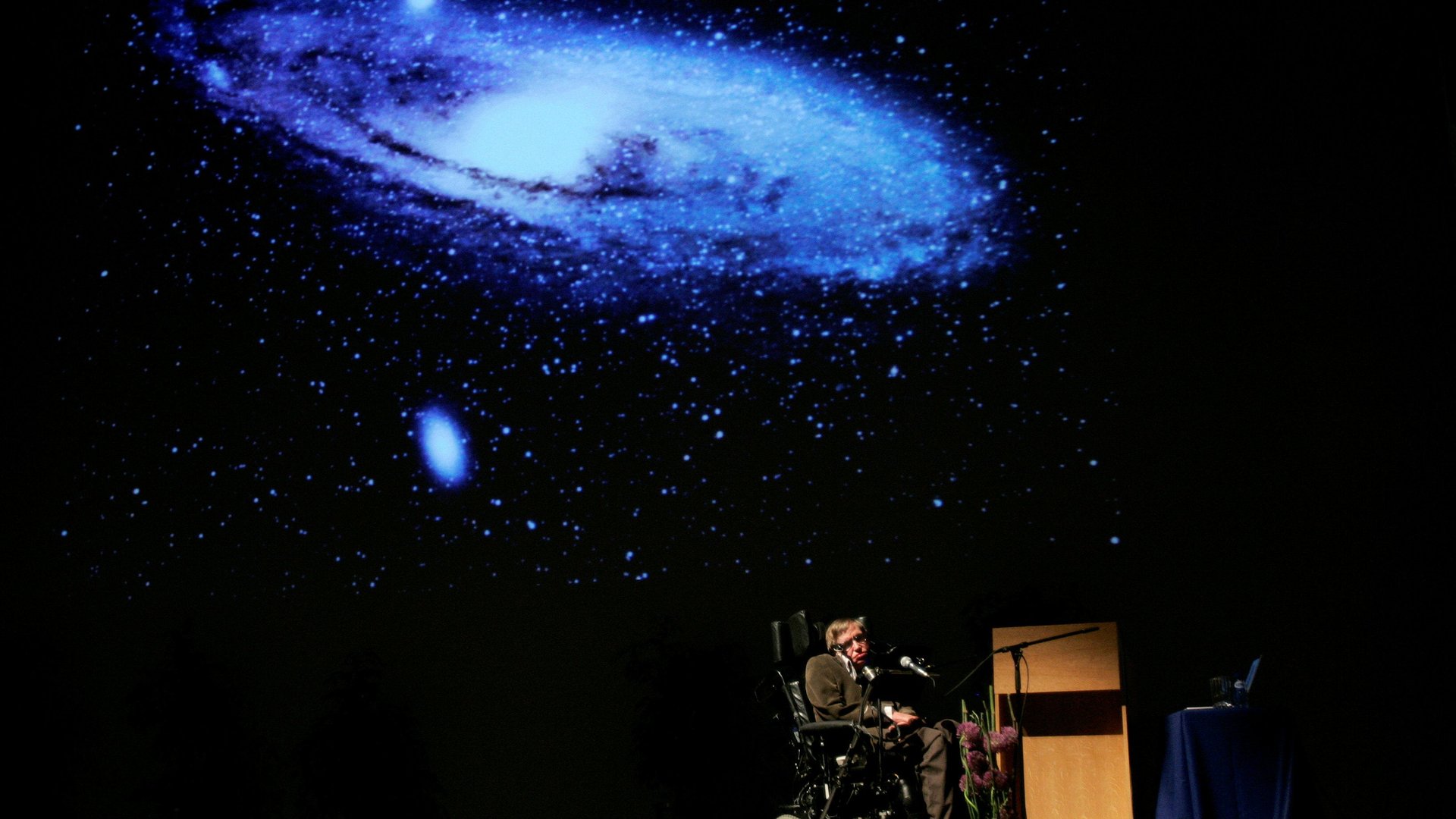Stephen Hawking, one of the world’s greatest minds, was an inspiration for atheists
Stephen Hawking was one of the greatest minds on earth. After dying at the age 76, as fellow physicist Neil deGrasse Tyson said, “his passing has left an intellectual vacuum in his wake.”


Stephen Hawking was one of the greatest minds on earth. After dying at the age 76, as fellow physicist Neil deGrasse Tyson said, “his passing has left an intellectual vacuum in his wake.”
His most famous work was across the study of black holes and relativity, where he wrote several popular science books including A Brief History of Time. Those works didn’t just inspire new generations of scientists, they also ignited a love and awe of physics amongst laymen like me, sparking a life-long fascination with string theory.
But while his intellectual prowess was what made Hawking a hero for many, it was also his poignant outlook on his own mortality and life, and his unwavering ability to solely look at logic and reason when he stared death in the face daily. He was a hero for atheists.
There was one point where religious advocates tried to use a quote from A Brief History Of Time to suggest his belief in God: “It would be the ultimate triumph of human reason – for then we should know the mind of God.” However, if it wasn’t clear to people that he was an atheist, in his 2010 book The Grand Design he clarified that it was a metaphorical comment. He later told El Mundo in no uncertain terms: ”What I meant by ‘we would know the mind of God’ is, we would know everything that God would know, if there were a God. Which there isn’t. I’m an atheist.”
After Professor Hawking was diagnosed with motor neurone disease at 21, he lived for more than five decades with medical professionals telling him that he could die at any moment. For atheists, who believe existence on earth is all that there is, every moment is sacred.
Hawking had to aggressively face his own mortality every single day, it would have been understandable for him to abandon evidential reasoning and fall into the old adage that there are “no atheists in a foxhole.” Instead, he continued to approach his stance on religion with scientific evidence-based reasoning. He also wasn’t afraid to call out what he saw as fictitious stories:
Science predicts that many different kinds of universe will be spontaneously created out of nothing. It is a matter of chance which we are in. I regard the brain as a computer which will stop working when its components fail. There is no heaven or afterlife for broken down computers; that is a fairy story for people afraid of the dark.
But more than anything, he didn’t have to say much to poignantly highlight how life as an atheist can mean having a voracious appetite to achieve, find value and meaning in every hour of the day, and realize that facts are beautiful enough without the “fairy tales:”
Science is beautiful when it makes simple explanations of phenomena or connections between different observations. Examples include the double helix in biology, and the fundamental equations of physics.
We should seek the greatest value of our action. I have lived with the prospect of an early death for the last 49 years. I’m not afraid of death, but I’m in no hurry to die. I have so much I want to do first.
Read more: Being an atheist shows you that every minute is sacred